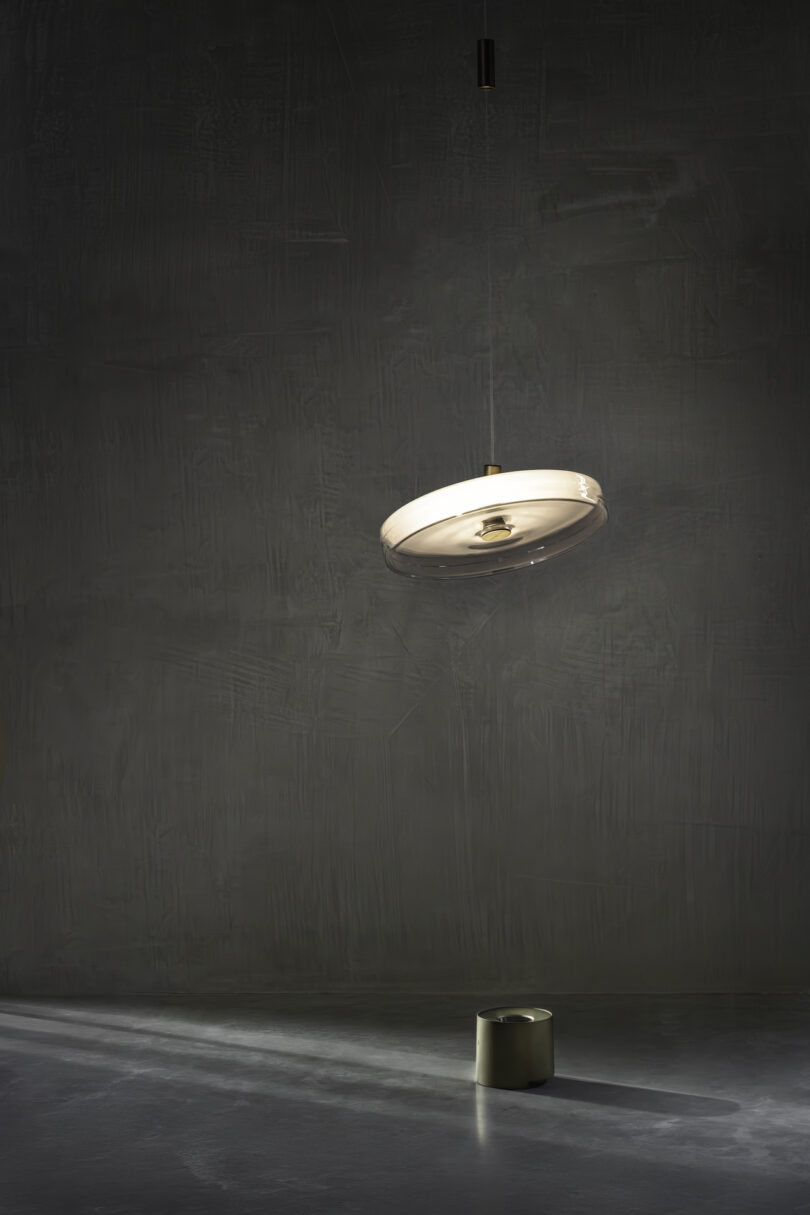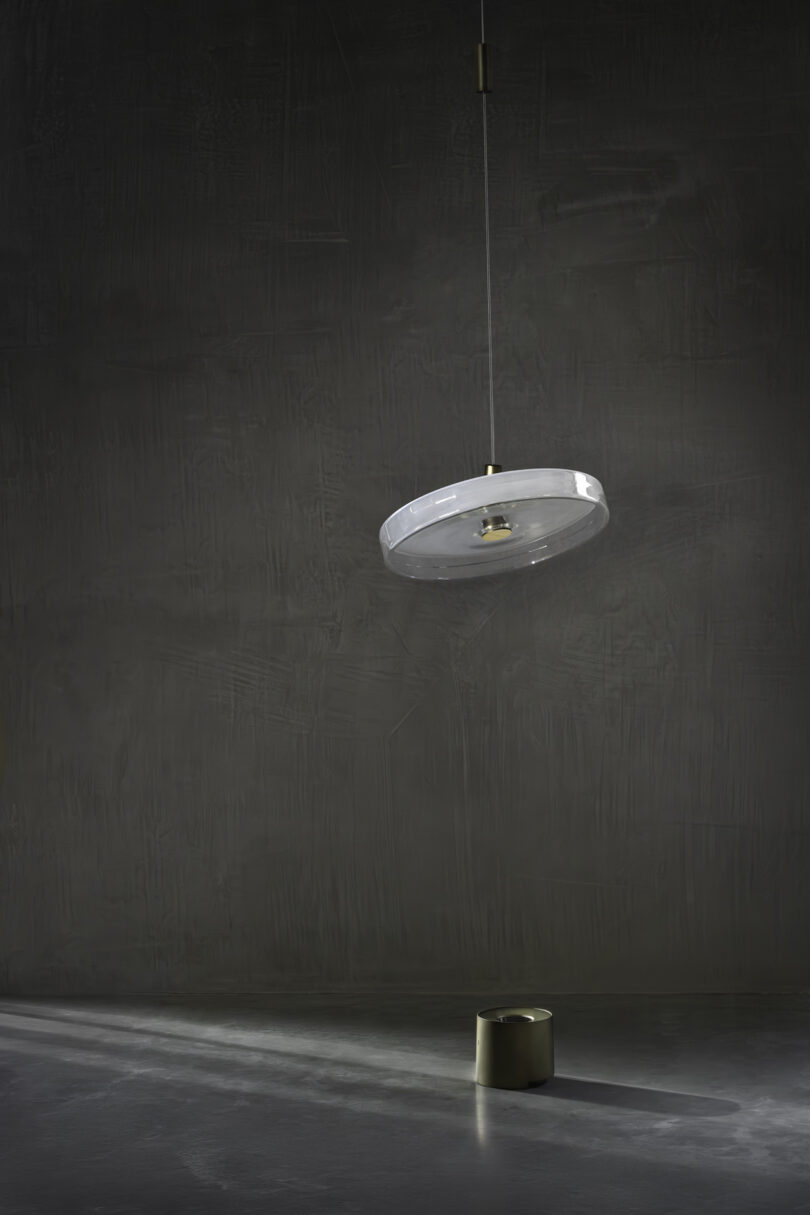
Today's links

Tariffs and monopolies (permalink)
For all that orthodox economists hate tariffs in all their forms, the question, "do tariffs work?" is a complex one, which can't be answered unless you specify which tariffs, in what context:
https://pluralistic.net/2025/04/02/me-or-your-lying-eyes/#spherical-cows-on-frictionless-surfaces
The orthodox case against tariffs goes like this: tariffs raise the price of goods before they reach the market. Sellers will raise the price of goods to recover those costs from buyers, so it's you, the person buying a car, a phone, or a board-game, who will bear that additional cost:
https://www.sjgames.com/ill/archive/April_03_2025/Tariffs_Are_Driving_Up_Game_Prices_Now
As is ever the case with economics, this critique builds in certain assumptions. And as is especially the case with neoliberal economics, this critique builds in certain assumptions that are never tested for veracity – indeed, neoliberal economists pride themselves on their reliance on incorrect assumptions:
https://pluralistic.net/2025/02/17/caliper-ai/#racism-machine
The main assumption built into the orthodox case against tariffs is that sellers can't afford to eat the costs of tariffs. In the thought-experiment land of neoliberalism, market competition erodes sellers' profits so that everything being sold is only slightly marked up above the cost of making it, getting it to the store and selling it to you. Companies are said to be making a "competitive" rate of profit, which is tautologically defined as "whatever profit they're making." If Nike pays $20 to make a pair of shoes in Vietnam that it sells in America for $140, that $120 profit is "competitive" – if it wasn't, it would be lower, and it isn't, so it is.
Trump's own explanation for how the tariffs will work is no better. Trump has made a variety of incoherent claims about who will pay the tariffs. On the campaign trail, he insisted that the tariffs would somehow be paid by America's trading partners, either by their governments or by overseas companies. This is literally untrue: when you order something from overseas, the customs broker sends the bill to you, not the company that sold you the goods.
But the smarter elements in the Trump orbit have a slightly more reality-based theory: they claim that importers, faced with tariff costs, will push back on sellers and insist that they discount their products to offset the tariff bill. That's how the costs end up being paid by foreign sellers – and if their governments step in to help pay the bill, that's how foreign governments will pay the bill.
This explanation has the benefit of actually being an explanation, in that it is a series of cause-and-effect relationships that end up with the costs being borne by someone other than stateside buyers. However, this explanation is also founded on (at least) two demonstrably untrue assumptions: first, that buyers have the power to force sellers to lower their prices; and second, that this power comes from the availability of substitute goods that are made (or could be made) in the USA.
It's possible for there to be a market economy in which buyers can force sellers to eat tariff costs. For that to happen, the sellers have to be in real competition with one another. Competition requires competitors: companies that consider themselves rivals, directly attacking one another's margins. But that's not how American big business operates: 40 years of lax antitrust enforcement has produced an American economy in which nearly every sector is dominated by a monopoly, a duopoly, or a cartel:
https://www.openmarketsinstitute.org/learn/monopoly-by-the-numbers
Take Nike: Nike controls 86% of the US athletic shoe market. Nearly all the remaining market share is owned by its main rivals, Adidas and Reebok – companies that merged in 2005. It's clear that Adidas/Reebok would like to get some of Nike's market share, but in 20+ years of duopoly rule over the sector, neither Nike nor Adidas/Reebok have tried a serious discounting strategy to win that market. Instead, the duopoly has found it easy to tacitly collude to rig margins of more than 600%. What's more, the collusion may have been explicit, not tacit – when a sector is dominated by two giant firms, the upper ranks of both companies are dominated by people who've worked at both companies. These people aren't rivals, they're peers. They're executors of one another's estates, godparents to one another's children, members of the same charitable boards and pickup sports leagues. They're lifelong pals. If you think they never explicitly conspire to rig markets – over drinks at someone's wedding or funeral, say – then I envy you your touching faith in humanity.
A market controlled by a handful of firms doesn't have to solve the thorny "collective action problem" of deciding on a regulatory priority and then holding that line as the cartel captures its regulators:
https://pluralistic.net/2022/06/05/regulatory-capture/
That means that these companies end up with pricing power, because they can maintain solidarity while they raise prices. If everyone hikes prices together, consumers can't exert market discipline by buying from someone less greedy. And the same solidarity that confers pricing power to a cartel also insulates it from regulatory discipline, because all the companies will tell the same lie to regulators about why prices went up.
This was on display for all to see during the covid inflation shocks. Companies like Pepsi boasted to shareholders that "consumers are willing to pay more for our brands," as they hiked prices way above any inflationary rises, meaning that they didn't just force buyers to cover their higher costs, they actually raised prices more than was needed to cover those costs:
https://pluralistic.net/2023/03/11/price-over-volume/#pepsi-pricing-power
Needless to say, Coke didn't respond by slashing its prices in order to capture Pepsi's customers. They did the opposite: they also raised prices over and above the inflationary costs. Coke and Pepsi might be rivals on paper, but when it comes to questions like, "Should sugar-water have higher margins?" they are the best of friends.
The same is true of the fossil fuel industry, another highly concentrated sector with sky-high margins that raised prices over inflation during the covid supply-chain shocks, and boasted about it on investor calls, without facing any regulatory scrutiny:
https://pluralistic.net/2022/03/15/sanctions-financing/#soak-the-rich
Neoliberal economists have an answer to this kind of thing: "it's fine." In the self-referential world of economism, whatever happens was meant to happen, because markets are efficient, so whatever happens in the market is efficient, and can only be made worse by state intervention. This theory of efficient markets is full of beautiful, self-equilibriating processes that can be precisely modeled using equations, but only because the field discards all the nonquantifiable elements of society, assuming that because you can't do math on these qualitative factors, they must not matter:
https://locusmag.com/2021/05/cory-doctorow-qualia/
Of all the qualitative factors that clearly matter that are treated as if they don't matter, the most obvious, glaring omission is power. Power is hard to measure, but if you try to model a transaction without factoring power in, you end up in very dark places, for example, in systems where people should be allowed to "voluntarily" sell themselves into slavery.
It goes without saying that a theory of economics without a theory of power relationships is a great deal for powerful people. In Careless People, the whistleblower Sarah Wynn-Williams's excellent new tell-all memoir about Facebook, Wynn-Williams recounts how shocked and offended Sheryl Sandberg became when she was told that other countries wouldn't allow her to go and buy a kidney for her son, should he ever need one (her kid wasn't sick – she just wanted to know that if he ever did get sick…):
https://us.macmillan.com/books/9781250391230/carelesspeople/
This is economics without a theory of power: if I offer to buy your son's kidney, and you accept my offer, then we have achieved a voluntary exchange of value that is – tautologically – assumed to be fair. Indeed, this transaction isn't merely a way for kidneys to change hands – it's a way to "discover" the "market price" of a kidney. We're not just buyers and sellers, we're brave explorers of the vast, uncharted space of market prices.
Economics without power relies on tautology: if you assume the market is efficient, then whatever you get is what you were supposed to get. If Nike can charge a 600% markup on a $20 pair of shoes, then that is the "natural" price. Everyone in the chain – the workers who made the shoes, the subcontractors who employed the worker, the freighters who shipped the shoes, the logistics company that brought the shoe to the store, the clerk who rang up the purchase – is making what the market says they should be making. The price you pay? That's the price you should pay.
Perhaps you've heard people say that the most important thing is to "grow the pie," and that it's foolish to argue about how big any given "slice of the pie" is:
https://www.vox.com/future-perfect/405403/abundance-ezra-klein-building-costs-housing-energy-democrats-polarization
But this doesn't stand up to even cursory examination. If your slice of the pie is way too small to live on, and the pie grows, and your slice doesn't grow with it – or if it does, but not by enough to keep you solvent, then the size of your slice of the pie is the only thing that matters.
Economists call this the "distributional outcome" question, and orthodox economists insist that only fools and ideologues talk about distributional outcomes. They consider distributional outcomes to be a trap that sucks in well-meaning people who back "market-distorting interventions" that end up making everyone else poorer.
But you know who really cares about distributional outcomes? The finance sector. Think of the 2015 American Airlines pilot strike, which ended with a raise for pilots. When the company announced this on an investor call, Citibank analyst Kevin Crissey declared: "This is frustrating. Labor is being paid first again. Shareholders get leftovers":
https://www.thestreet.com/investing/american-airlines-flight-attendants-bash-citi-analyst-who-put-shareholders-before-workers-14134309
Investors have a lot of power. After all, capital is concentrated into just a few hands, with trillions being wielded by institutional investors – index funds, hedge funds, etc – and they get to elect the board, who have the power to hire and fire corporate executives. A corporate board is like a trade union for wealth, a small committee that wields solidaristic power to threaten companies with dire consequences if their interests aren't given priority over the interests of workers and buyers.
No wonder that corporations are so ardently opposed to other forms of solidaristic power, like trade unions – who might shift value from investors to workers – and regulators – who might shift value from investors to buyers. Without these sources of countervailing power, unified capital will not only pass on any additional costs to workers and shoppers, they'll raise prices over and above any inflationary hikes. This does indeed "grow the pie" – while beggaring both shoppers and workers.
In other words, Nike could eat the tariff costs on its goods, but it won't because it doesn't have to, because it's part of a duopoly that both tacitly and explictly colludes to screw its customers and workers. Indeed, the cartelized big businesses that run the US economy just spent the pandemic years doing greedflation – using the excuse of the pandemic and their monopolistic pricing power to raise the prices of everything, from your rent to a dozen eggs:
https://pluralistic.net/2025/03/10/demand-and-supply/#keep-cal-maine-and-carry-on
If you've got the right kind of especially smooth market-pilled brain, you insist that this is impossible. These giant margins are so tempting that they will inevitably coax "new market entrants" into opening competing businesses. That does happen – sometimes. But not when the dominant companies can figure out how to build Warren Buffett's cherished "moats and walls" around their businesses. For example, if you're Amazon and 90% of middle class US households prepay for their shipping through Prime, you can charge sellers whatever the traffic will bear, because they have to go through your chokepoint in order to reach their best customers. That's how Amazon ended up taking 45-51% out of every dollar platform sellers earn:
https://pluralistic.net/2024/08/14/the-price-is-wright/#enforcement-priorities
In Trumpland, the point of tariffs is to create friction on imports so that investors back businesses that do their production onshore. There's plenty of reasons to want things to be made in America. Manufacturing key resources in the US creates resiliency against geopolitical events (like wars), environmental disasters (like shipping-disrupting superstorms), and epidemiological events (like pandemics). Moreover, the low cost of overseas manufacturing often comes at the expense of human rights and environmental protection: making things in the US is no guarantee that they'll be made by fairly compensated workers in safe workplaces that don't pollute their environments, but it's a lot easier to enforce those priorities when production is within US borders.
But US investors spent the past 40 years gleefully demolishing the capacity of America to make things. As Apple CEO Tim Cook said:
[V]ocational expertise is very deep here [in China]. And I give the educational system a lot of credit for continuing to push on that even as others were de-emphasizing vocational.
https://www.forbes.com/sites/quora/2018/01/17/how-much-would-an-iphone-cost-if-apple-were-forced-to-make-it-in-america/
The US doesn't have enough qualified tool-and-die makers and other skilled tradespeople to produce the machines that will make the goods that Americans want to buy. New tradespeople can be trained, but acquiring these skilled trades is a process of many years. For the US to reshore its manufacturing, it needs substantial, sustained public investment in capacity-building: loans and grants to train workers and investment in basic research and other non-market goods needed to recover the US manufacturing base.
America should do all that, but if it wants to try, it needs a robust, predictable, orderly system of government to build upon. It needs the kind of reliable and orderly processes that make people feel safe about changing trades and going back to school. It needs imports of goods from overseas that can be used to restart the US manufacturing capacity that can replace those imports.
But in a market like this one, dominated by monopolies who needn't fear the Trump-gutted FTC, DOJ and CFPB; where cartels have captured their regulators; where Doge-style chaos spreads existential terror about the future, tariffs will only raise prices, without any significant re-shoring or capacity building. The Trump tariffs are a gift to giants like Nike, who have the logistics sophistication to exploit loopholes, demand preferential rates from shippers and brokers, and to pass on costs to their customers. Any domestic company that seeks to compete with Nike will not have these advantages. For Nike – and other dominant companies – the Trump tariffs are just another moat, another obstacle which they can hurdle, but which stops smaller competitors dead in their tracks:
https://www.thebignewsletter.com/p/with-high-tariffs-has-trump-ended
Trump's tariffs, weak antitrust and weak consumer regulation are a recipe for shifting billions from the American public to the investors in the largest companies. It's still going to result in a huge economic collapse, but the most profitable companies of today will be best poised to stay on top of the pile after the crash. One hopeful outcome of this is that a bunch of the One Percenters are extremely fucked off about the plan:
https://coreyrobin.com/2025/04/06/is-the-conservative-crackup-finally-here/
The New Civil Liberties Alliance is a nonprofit impact litigation shop funded by Leonard Leo, the mastermind of the Federalist Society and its takeover of the Supreme Court. They're the ones who got Chevron Deference overturned last year, and now they're suing the Trump administration over the tariffs:
https://www.washingtonpost.com/politics/2025/04/05/trump-tariffs-sink-conservatives-challenge-whether-theyre-legal/
As Corey Robin writes, tariffs have a long history of breaking up conservative coalitions, "the leading edge of political conflict in the 19th century." Robin writes that the conservative movement has spent years shifting tariff power from Congress to the president, never anticipating that someday, a president might preside over a Mad King tariff strategy. Now, Robin says:
The tariff is going to be the major issue that leads the judicial right to confront the empowered executive that they’ve turbo-charged in so many other ways.
Last year, Rick Perlstein pointed out that the true significance of Project 2025 lay in its contradictions, the irreconcilable, mutually exclusive policy prescriptions found in its pages:
https://pluralistic.net/2024/07/14/fracture-lines/#disassembly-manual
Perlstein said that these contradictions were a map of the fracture lines in the Trump coalition. Trump's tariffs clearly represent a major fault-line, and we need to seize this opportunity when it presents itself.
Hey look at this (permalink)


Object permanence (permalink)
#15yrsago Correcting the ignorant UK Members of Parliament who “debated” the Digital Economy Bill https://memex.craphound.com/2010/04/07/correcting-the-ignorant-uk-members-of-parliament-who-debated-the-digital-economy-bill/
#15yrsago Congressman: Air Marshals cost $200 million per arrest https://web.archive.org/web/20100407220132/https://duncan.house.gov/2009/06/22062009.shtml
#15yrsago Blink tag considered harmful https://www.zerodayinitiative.com/advisories/ZDI-10-031/
#15yrsago How ACTA will change the world’s internet laws https://web.archive.org/web/20100407161949/http://www.acslaw.org/node/15774
#5yrsago Landlord changes church's locks https://pluralistic.net/2020/04/07/analprinting/#faith-healer
#5yrsago Private equity blinks on cuts to health workers' wages https://pluralistic.net/2020/04/07/analprinting/#guillotine-watch
#5yrsago US stimulus is one week's cash https://pluralistic.net/2020/04/07/analprinting/#confidence
#5yrsago LA crime plummets https://pluralistic.net/2020/04/07/analprinting/#elite-panic
#5yrsago California's fiber for all bill https://pluralistic.net/2020/04/07/analprinting/#califiber
#5yrsago Covid loteria cards https://pluralistic.net/2020/04/07/analprinting/#pinche-raf
#5yrsago A farewell to APIs https://pluralistic.net/2020/04/07/analprinting/#web-2.0-RIP
Upcoming appearances (permalink)


Recent appearances (permalink)

-
- The Bezzle: a sequel to "Red Team Blues," about prison-tech and other grifts, Tor Books (US), Head of Zeus (UK), February 2024 (the-bezzle.org). Signed, personalized copies at Dark Delicacies (https://www.darkdel.com/store/p3062/Available_Feb_20th%3A_The_Bezzle_HB.html#/).
-
"The Lost Cause:" a solarpunk novel of hope in the climate emergency, Tor Books (US), Head of Zeus (UK), November 2023 (http://lost-cause.org). Signed, personalized copies at Dark Delicacies (https://www.darkdel.com/store/p3007/Pre-Order_Signed_Copies%3A_The_Lost_Cause_HB.html#/)
-
"The Internet Con": A nonfiction book about interoperability and Big Tech (Verso) September 2023 (http://seizethemeansofcomputation.org). Signed copies at Book Soup (https://www.booksoup.com/book/9781804291245).
-
"Red Team Blues": "A grabby, compulsive thriller that will leave you knowing more about how the world works than you did before." Tor Books http://redteamblues.com. Signed copies at Dark Delicacies (US): and Forbidden Planet (UK): https://forbiddenplanet.com/385004-red-team-blues-signed-edition-hardcover/.
-
"Chokepoint Capitalism: How to Beat Big Tech, Tame Big Content, and Get Artists Paid, with Rebecca Giblin", on how to unrig the markets for creative labor, Beacon Press/Scribe 2022 https://chokepointcapitalism.com
-
"Attack Surface": The third Little Brother novel, a standalone technothriller for adults. The Washington Post called it "a political cyberthriller, vigorous, bold and savvy about the limits of revolution and resistance." Order signed, personalized copies from Dark Delicacies https://www.darkdel.com/store/p1840/Available_Now%3A_Attack_Surface.html
-
"How to Destroy Surveillance Capitalism": an anti-monopoly pamphlet analyzing the true harms of surveillance capitalism and proposing a solution. https://onezero.medium.com/how-to-destroy-surveillance-capitalism-8135e6744d59?sk=f6cd10e54e20a07d4c6d0f3ac011af6b) (signed copies: https://www.darkdel.com/store/p2024/Available_Now%3A__How_to_Destroy_Surveillance_Capitalism.html)
-
"Little Brother/Homeland": A reissue omnibus edition with a new introduction by Edward Snowden: https://us.macmillan.com/books/9781250774583; personalized/signed copies here: https://www.darkdel.com/store/p1750/July%3A__Little_Brother_%26_Homeland.html
-
"Poesy the Monster Slayer" a picture book about monsters, bedtime, gender, and kicking ass. Order here: https://us.macmillan.com/books/9781626723627. Get a personalized, signed copy here: https://www.darkdel.com/store/p2682/Corey_Doctorow%3A_Poesy_the_Monster_Slayer_HB.html#/.

- Enshittification: Why Everything Suddenly Got Worse and What to Do About It, Farrar, Straus, Giroux, October 7 2025
https://us.macmillan.com/books/9780374619329/enshittification/
-
Unauthorized Bread: a middle-grades graphic novel adapted from my novella about refugees, toasters and DRM, FirstSecond, 2026
-
Enshittification, Why Everything Suddenly Got Worse and What to Do About It (the graphic novel), Firstsecond, 2026
-
The Memex Method, Farrar, Straus, Giroux, 2026

Today's top sources:
Currently writing:
- Enshittification: a nonfiction book about platform decay for Farrar, Straus, Giroux. Status: second pass edit underway (readaloud)
-
A Little Brother short story about DIY insulin PLANNING
-
Picks and Shovels, a Martin Hench noir thriller about the heroic era of the PC. FORTHCOMING TOR BOOKS FEB 2025
Latest podcast: Nimby and the D-Hoppers https://craphound.com/stories/2025/04/06/nimby-and-the-d-hoppers-2/

This work – excluding any serialized fiction – is licensed under a Creative Commons Attribution 4.0 license. That means you can use it any way you like, including commercially, provided that you attribute it to me, Cory Doctorow, and include a link to pluralistic.net.
https://creativecommons.org/licenses/by/4.0/
Quotations and images are not included in this license; they are included either under a limitation or exception to copyright, or on the basis of a separate license. Please exercise caution.
How to get Pluralistic:
Blog (no ads, tracking, or data-collection):
Pluralistic.net
Newsletter (no ads, tracking, or data-collection):
https://pluralistic.net/plura-list
Mastodon (no ads, tracking, or data-collection):
https://mamot.fr/@pluralistic
Medium (no ads, paywalled):
https://doctorow.medium.com/
Twitter (mass-scale, unrestricted, third-party surveillance and advertising):
https://twitter.com/doctorow
Tumblr (mass-scale, unrestricted, third-party surveillance and advertising):
https://mostlysignssomeportents.tumblr.com/tagged/pluralistic
"When life gives you SARS, you make sarsaparilla" -Joey "Accordion Guy" DeVilla
ISSN: 3066-764X





























